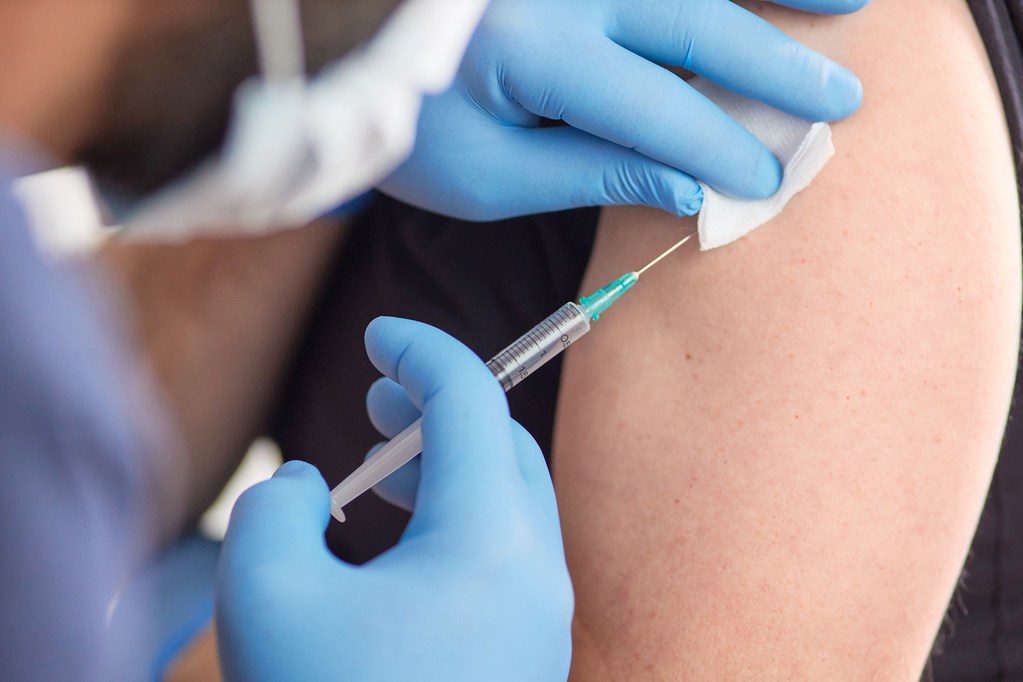The Delta variant remains dominant across Europe and Central Asia but COVID-19 vaccines remain effective in reducing severe disease and deaths from it, according to WHO.
“It is yet to be seen how and whether the latest COVID-19 variant of concern, Omicron, will be more transmissible, or more or less severe,” said WHO Regional Director for Europe, Dr Hans Henri P. Kluge, at a press conference on Tuesday (7 December).
“Information available on the variant is preliminary and evolving, including how effective our countermeasures are, including our vaccines, diagnostics and therapeutics,” he added.
Omicron is in sight and on the rise and we are right to be concerned and cautious but the problem now is Delta, according to WHO. “How we succeed against Delta today is a win over Omicron tomorrow. We are in the business of stabilizing a pandemic, and that means not one variant at a time but all variants, at once.”
What is done now to contain the spread of Delta will also limit the spread of Omicron but WHO admitted that the number of daily cases of Omicron is increasing and can be numbered in the hundreds. “There will be further spread of Omicron but we don’t know how much.”
In WHO/Europe’s previous alert last month, it warned that a further half a million lives could be lost by early 2022 unless urgent action is taken.
A month has passed and a further 120,000 people have died, and the region has added another 10 million COVID-19 cases to its tally. By the end of this week, 1 in 10 people across the European Region will have had a COVID-19 infection, confirmed by laboratory testing.
“We called upon governments and people to take immediate steps to bring transmission down, by implementing five pandemic stabilizers.”
“The first call is that we need to shift from ‘reaction’ to ‘stabilization’ mode in this crisis. There are five pandemic stabilizers to keep mortality down.”
- Increasing vaccine uptake
- Administering additional or third doses
- Doubling the rate of mask-wearing indoors
- Ventilating crowded spaces
- Adopting rigorous therapeutic protocols for severe cases
Protecting children and their schools is as part of the response strategy, he underlined. “It is not unusual today to see 2 to 3 times higher incidence among young children than in the rest of the population,” he said. Lower outbreaks of infections have been noticed for example in France among pupils wearing masks in school.
“The health risks extend beyond the children themselves. As school holidays approach, we must also acknowledge that children can infect their parents and grandparents at home, with a tenfold increased risk for these adults to develop severe disease, be hospitalized or die if non-vaccinated."
At the press conference, WHO stressed the importance of booster vaccination because the effect of primary vaccination is waning after 30 weeks.
What is WHO’s opinion about the European Commission’s recent proposal to extend the expiry date of full primary vaccination to 9 months to give the EU member states time to implement the booster vaccination?
WHO experts replied that the priority should be to vaccinate those who still are unvaccinated. As regards the booster dose, there is a need to be pragmatic. Two doses of the vaccines are still effective in preventing severe hospitalisation. The third dose should first be given to immunity compromised people and to the elderly.
WHO referred to its technical advisory group which is constantly reviewing the data. For the time being there seems to be no clear answer to the question if extending the validity period for primary vaccination opens up a dangerous gap.
WHO calls on Europe to demonstrate international solidarity. Is the WHO in favour of temporarily wavering IP-rights to COVID-19 patents during the corona crisis to enable local production of the vaccines?
Dr Kluge replied that quality assurance of the production is key and listed the three options – sharing doses (donations), increasing uptake of vaccines (overcoming vaccine hesitancy) and increasing production. While not directly addressing the issue of temporary wavering of patent rights, he said that all options should be considered.
M. Apelblat
The Brussels Times

